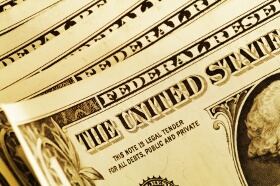The US dollar had a rather bad week as traders felt less threatened by the crisis in Europe and slower growth in China, while the US central bank announced yet another quantitative easing. Yet the greenback posted the highest weekly close since April 2011 against the Japanese yen.
The major even for the US currency domestically was the monetary policy decision of the Federal Reserve. The Fed announced yet another expansion of its monetary stimulus. Some analysts thought that even more important is the fact that the bank set conditions, not specific date, for the end of the stimulating program.
Outside of the United States, events were for the most part also negative for the dollar. The future of Europe looked better after Greece received another round of the bailout and lawmakers were talking about a banking union. Some positive data from Germany added to optimism of traders. China showed signs of improvement too.
The US currency fell even against the Swiss franc, which was weakened by speculations about negative interest rates after some banks had started charging for franc deposits. Yet the Swiss National Bank kept its policy unchanged, reducing such talks.
The yen was the biggest loser, performing even worse than the dollar. It is not a surprise, considering that the outcome of the elections in Japan this weekend is believed to turn out negative for the Japanese currency.
EUR/USD rallied from 1.2888 to 1.3154, the strongest weekly close since April. USD/CHF dropped from 0.9367 to 0.9182 this week — the lowest close since April. USD/JPY jumped from 82.50 to 83.50, posting the fifth consecutive week of gains and reaching the highest weekly closing price since the April 2011.
If you have any questions, comments or opinions regarding the US Dollar,
feel free to post them using the commentary form below.
